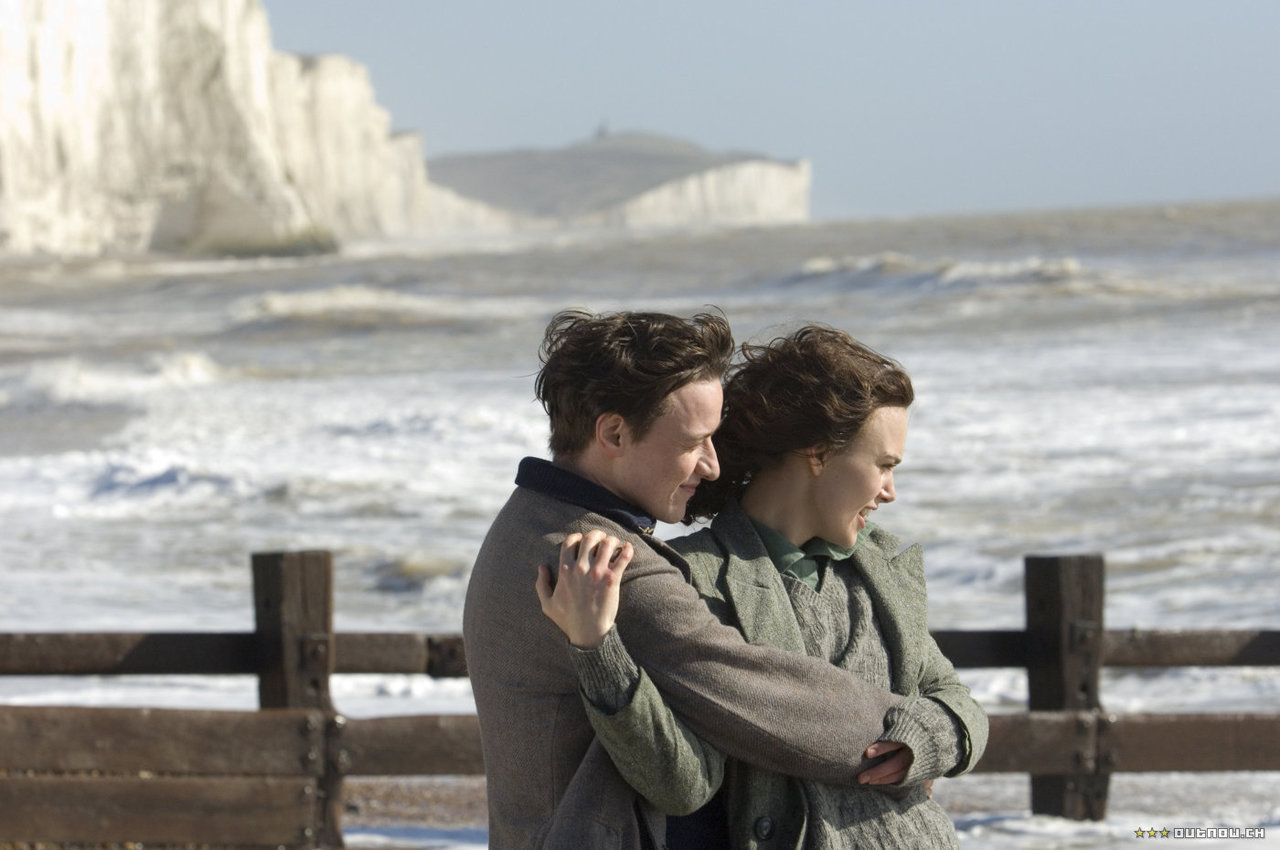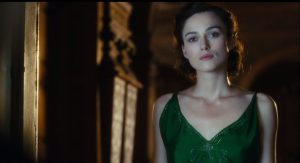Atonement (2007)

Director: Joe Wright
Based on: Ian McEwan’s novel Atonement (2001)
Starring: Saoirse Ronan, James McAvoy, Keira Knightley, Romola Garai, Brenda Blethyn, Vanessa Redgrave
Plot Summary: “Atonement” is a historical drama that spans several decades, telling the story of Briony Tallis (Saoirse Ronan, Romola Garai, and Vanessa Redgrave), a young girl whose mistaken accusation leads to the tragic separation of her sister Cecilia (Keira Knightley) and her lover Robbie Turner (James McAvoy). Set against the backdrop of World War II, the film explores themes of guilt, redemption, and the consequences of a single moment’s misjudgment. As Briony grows older, she seeks to atone for the pain she caused by writing a novel that attempts to make amends for her actions.
Review:
1. Storyline and Themes: The narrative of “Atonement” revolves around the devastating impact of a false accusation and the lifelong repercussions for those involved. The story explores themes of guilt, the search for redemption, and the ways in which personal actions can irrevocably alter lives. The novel and film grapple with the idea of atonement and the complexities of human relationships and misunderstandings. The multi-layered narrative, which includes shifts in perspective and time, provides a rich and nuanced exploration of the characters’ inner lives and moral dilemmas.
2. Performances: The cast delivers strong and compelling performances. Saoirse Ronan, as the young Briony, brings intensity and depth to the role, capturing the character’s innocence and the weight of her actions. James McAvoy and Keira Knightley provide a poignant portrayal of Robbie and Cecilia’s passionate and tragic romance. Their performances are marked by emotional depth and chemistry. Vanessa Redgrave, as the older Briony, conveys the weight of regret and the complexity of the character’s quest for redemption with remarkable subtlety and grace. The supporting cast, including Romola Garai and Brenda Blethyn, also contribute significantly to the film’s emotional impact.
3. Direction and Cinematography: Joe Wright’s direction is characterized by its visual elegance and emotional intensity. The film features meticulously crafted scenes that enhance the storytelling, including the renowned and intricately choreographed Dunkirk beach sequence. Cinematographer Seamus McGarvey’s work complements Wright’s direction with its evocative and striking visuals, using light and color to reflect the film’s shifting moods and settings. The cinematography helps convey the grandeur of the settings and the intimate moments of the characters, enhancing the film’s overall impact.
4. Music and Soundtrack: The score, composed by Dario Marianelli, is an integral part of the film’s emotional landscape. Marianelli’s music, including the memorable use of a typewriter as a rhythmic element, underscores the film’s themes and enhances its dramatic tension. The soundtrack complements the narrative’s emotional highs and lows, adding depth to the film’s storytelling and contributing to its overall atmosphere.
5. Reception and Legacy: “Atonement” received widespread critical acclaim and was praised for its adaptation of Ian McEwan’s novel, as well as its performances, direction, and technical achievements. The film was nominated for numerous awards and won several, including the Academy Award for Best Original Score. It is often regarded as a significant work in the historical drama genre and is noted for its exploration of themes related to guilt, redemption, and the impact of war on personal lives. The film’s legacy is marked by its emotional resonance and its ability to capture the complexities of its source material.
Conclusion: “Atonement” is a beautifully crafted and emotionally powerful film that delves into the themes of guilt, redemption, and the far-reaching consequences of a single moment’s mistake. With strong performances from Saoirse Ronan, James McAvoy, Keira Knightley, and Vanessa Redgrave, and under Joe Wright’s adept direction, the film successfully translates Ian McEwan’s novel into a visually stunning and emotionally compelling cinematic experience. Its exploration of complex moral issues and its impact on viewers ensure its place as a notable work in contemporary cinema.











